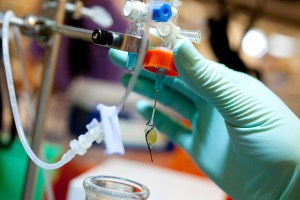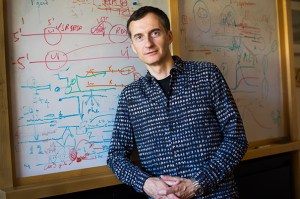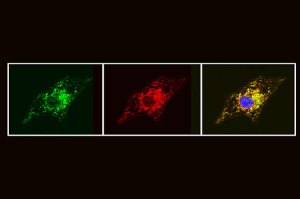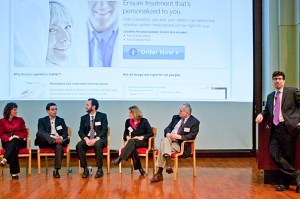Tag: George Church
-
Science & Tech
Enzymatic DNA synthesis sees the light
Controlling a DNA-synthesizing enzyme with photolithographic methods from the computer chip industry facilitates multiplexed writing and storage of digital data in DNA.

-
Health
A multipronged attack against a shared enemy
As the pandemic intensifies, Harvard scientists work to find a treatment.
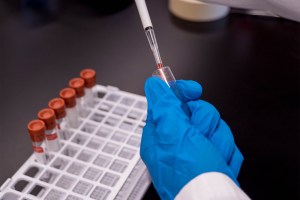
-
Science & Tech
Combination gene therapy treats age-related diseases
Wyss Institute, Harvard Medical School study offers hope for single genetic treatment for multiple age-related ills.
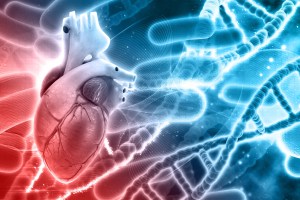
-
Health
Study finds performance-enhancing bacteria in human microbiome
A single microbe accumulating in the microbiome of elite athletes can enhance exercise performance in mice, paving the way to highly validated performance-enhancing probiotics.

-
Health
The science, business of aging
A half-day conference at Harvard Business School examined the growing promise of research on aging and the potential of now-experimental interventions to one day ease the burdens of infirmity.
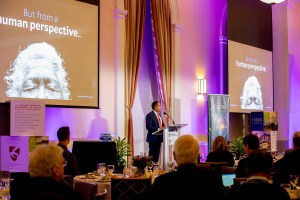
-
Science & Tech
Perspectives on gene editing
Harvard researchers, others share their views on key issues in the field

-
Health
Pig organs for human patients: A challenge fit for CRISPR
To help develop safe and effective cells, tissues, and organs for medical transplant into human patients, Harvard’s Office of Technology Development has granted a technology license to the Cambridge biotech startup eGenesis.
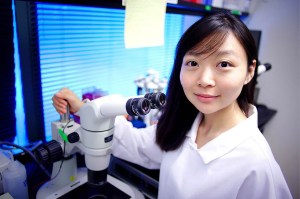
-
Health
Keeping the genetic code clean
Researchers have taken the first step toward removing unwanted cells by converting the CRISPR/Cas9 genome-engineering system into a genome-surveillance tool that removes newly occurring disease-associated mutations.
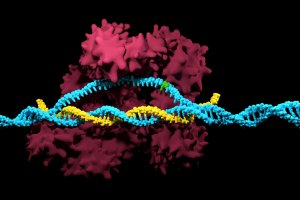
-
Science & Tech
New CRISPR technology takes cells to the movies
CRISPR system-based technology enables the chronological recording of digital information, turning living cells into a biological hard drive that can record information.

-
Health
Brain-training app creators join in the genetics game
The Wyss Institute and Harvard Medical School’s Personal Genome Project are collaborating with Lumos Labs, the makers of Lumosity, to investigate the relationship between genetics and memory, attention, and reaction speed.
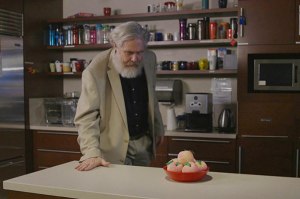
-
Health
Updating embryo research guidelines
Scientists and ethicists gathered at Harvard Law School to discuss the ethics of human embryo experimentation and whether a two-week developmental time limit on their use is appropriate any longer.
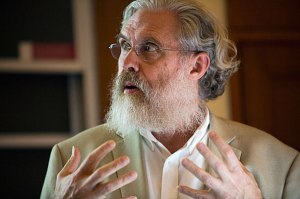
-
Campus & Community
‘If you’re not failing, you’re probably not trying as hard as you could be’
Interview with geneticist George Church as part of the Experience series.
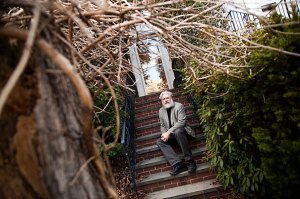
-
Science & Tech
Plants with biosensors may light the way
A team of researchers from the Wyss Institute and Harvard Medical School has developed a new method for engineering a broad range of biosensors to detect and signal virtually any desired molecule using living eukaryotic cells. Its applications could range from detecting hormones to benefiting agriculture.
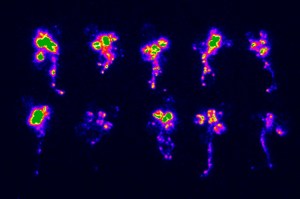
-
Health
How new biosensors turn E. coli into something valuable
New biosensors developed by Wyss Institute core faculty member George Church enable complex genetic reprogramming of common bacteria like E. coli and could be leveraged for sustainable biomanufacturing, using the metabolic processes of bacterial cells to generate valuable chemicals and fuels.
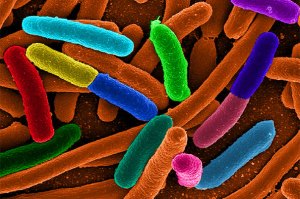
-
Health
Changing the way genomes work
In the Wyss Institute’s inaugural podcast “Disruptive,” host Terrence McNally spoke with Pamela Silver and George Church about today’s breakthroughs in technology and modifications to an organism’s genome that can be conducted more cheaply, efficiently, and effectively than ever before.
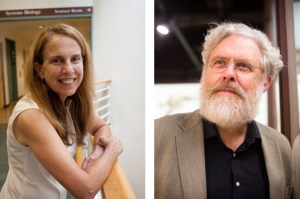
-
Health
Bacteria ‘factories’ churn out valuable chemicals
A team of researchers led by Harvard geneticist George Church at the Wyss Institute for Biologically Inspired Engineering and Harvard Medical School has made big strides toward a future in which the predominant chemical factories of the world are colonies of genetically engineered bacteria.
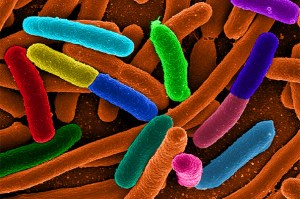
-
Health
Behold the mammoth (maybe)
Harvard geneticist George Church discussed the future of genetic engineering, including possible technological applications allowing new treatment techniques. He saw the potential to improve human health, revolutionize pest management, and perhaps even bring back the mammoth and other extinct species.
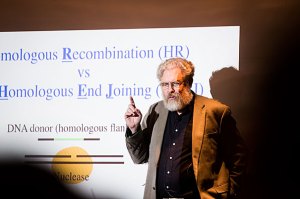
-
Health
Genes without patents
The ACLU’s lead attorney and other participants in the Supreme Court case that overturned the common practice of patenting human genes discussed the ramifications in an event at the Science Center.
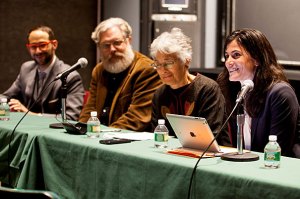
-
Health
Programming genetic code can lead to better designer genes
The key to programming bacteria to follow orders has been found in its protein production. Researchers have learned that by using more rare words, or codons, near the start of a gene, they can remove roadblocks to protein production. The knowledge may mean new drugs and biofuels.

-
Health
Sending DNA robot to do the job
Researchers at the Wyss Institute for Biologically Inspired Engineering at Harvard University have developed a robotic device made from DNA that could potentially seek out specific cell targets within a complex mixture of cell types and deliver important molecular instructions, such as telling cancer cells to self-destruct or programming immune responses.
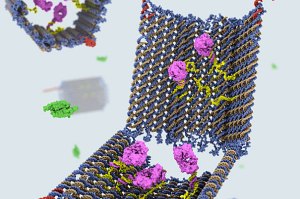
-
Health
Wyss Institute project targets sepsis
The Wyss Institute for Biologically Inspired Engineering at Harvard has been awarded a $12.3 million, four-year grant from the Defense Advanced Research Projects Agency to develop a treatment for sepsis, a commonly fatal bloodstream infection.
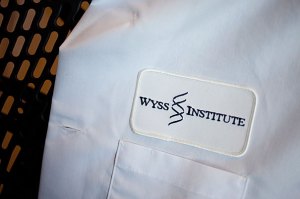
-
Campus & Community
Bjork named Marshall Scholar
Harvard senior Samuel Bjork has won a prestigious Marshall Scholarship, allowing him to study for two years in the United Kingdom at the university of his choice.
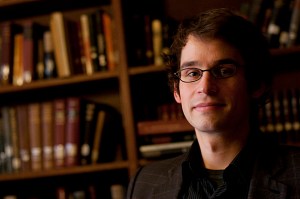
-
Health
Taking a stride toward synthetic life
Harvard scientists have cleared a key hurdle in the creation of synthetic life, assembling a cell’s critical protein-making machinery in an advance with both practical, industrial applications and that advances…


